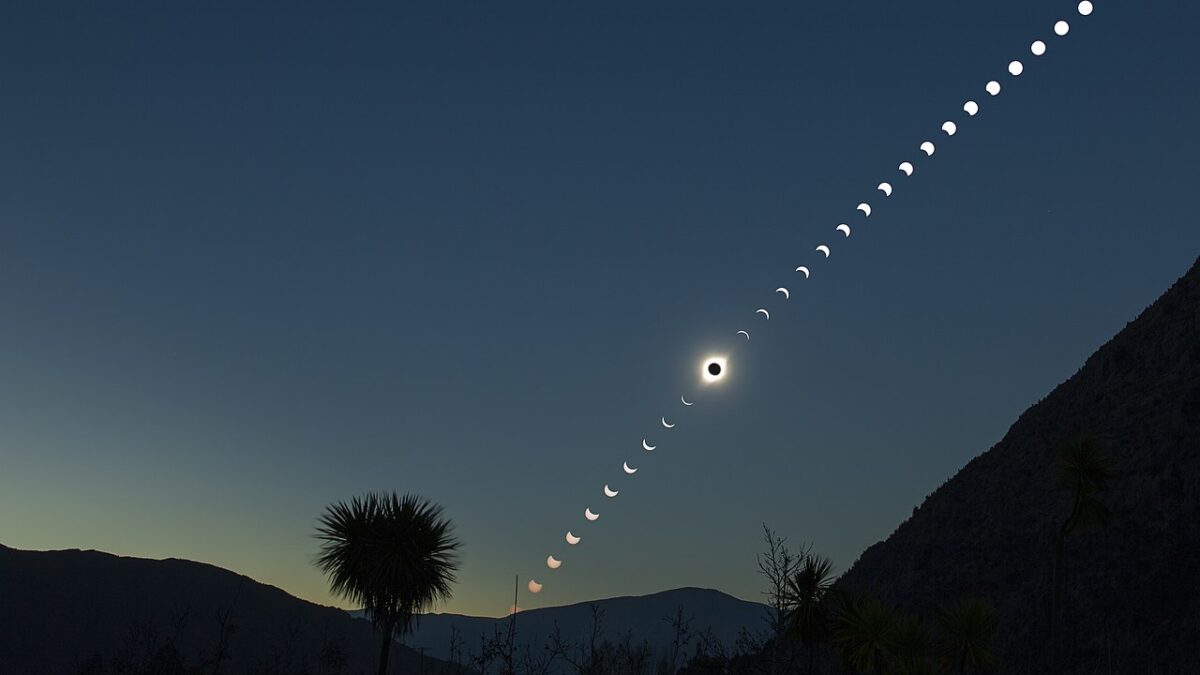
Even as coronavirus vaccines slowly make their way into the population, debates rage around the world on whether lockdowns should continue or be implemented anew. Often in these debates, one hears the term “science” tossed about irresponsibly, sometimes by participants on both sides of the argument.
Most of the time, however, when people say that we should “follow the science,” they mean we should listen to the expert advice of medical professionals who argue in favor of lockdowns. Often, we hear science called upon when governors and mayors order school closings or when heads of state demand their constituents abstain from merry-making during holidays or weekends.
To understand the soundness, or lack thereof, of the scientific foundation of this advice, one ought to take a step back to understand what we’re dealing with here. Indeed, the injunction to “follow the science” is more philosophically involved than many realize.
The Philosophy of Science
A whole branch of philosophy exists that is referred to as the philosophy of science, seeking to understand what science is, how it works, and what implications science has for society and our understanding of truth. The Greeks were among the earliest to begin philosophizing about science, and their lively debates sparked contributions in the modern era from Francis Bacon, Rene Descartes, Immanuel Kant, Bertrand Russell, Karl Popper, Thomas Kuhn, and — my personal favorite — Paul Feyerabend.
So, what is science? The answer to this question is essentially the same as to the question “What is reason?” It’s a tool, a way of performing an action.
If an ancient mariner were considering setting out on an unusually perilous journey, for example, he had different ways of going about it. He could consult the Apollonian oracle in Delphi how best to undertake it, or, since his trireme would do well to stay close to the coast for as long as possible, he could study the shorelines, while also considering the position of the stars before embarking out on the open sea.
Whereas the Oracle could tell him anything it pleased — usually in the form of a cryptic phrase that left any possibility open — the latter method would be the scientific way. But this scientific way could never tell him whether to set out on the journey at all, a decision that would be entirely up to him. If indeed he decided to set sail, science would only offer him a particular way of going about it.
Science Doesn’t Give Directions
The problem with a statement like “Follow the science” is that it bestows upon science its own ontological identity — it assumes that science is a thing, an entity, and one that will lead us in some way to a particular decision. Science, thereby, takes on an almost god-like character. But science does not have a separate, independent existence, and therefore, it can’t play such a role.
It is worth emphasizing here the role that the positivism of the French Enlightenment has played in bringing about the attitude hiding behind “Follow the science.” To a considerable extent, much of the French Enlightenment was akin to a religion — based on faith, not science or reason.
Because, for instance, science cannot establish that we are all equal, it cannot establish that we are all unequal. Rather, the very notions such as the concept of “human rights,” are drawn from an arbitrary Enlightenment interpretation of science and reason, with Christianity and some strands of Hellenistic philosophy as a foundation.
The claims of actual science — that is, of experiments performed scientifically — are far more modest. Actual science will only state, for instance, that humans share about 96 percent of their DNA with chimpanzees, and between 99.0 percent and 99.9 percent with each other. Whether this means we are not very different from apes or not, or that we are all equal to each other or not, science has absolutely nothing to say.
Again, science is not an entity that decrees things to us. Science is simply a way for us to perform an action or experiment to derive certain morally neutral data — an empirical and deductive process through which we can draw certain inductive conclusions. This, however, is lost on many of our politicians, and especially those who hector us about the “dictates” of “science.”
The danger with the prevailing attitude we inherited from the Enlightenment is that it leads us to believe that we are stating objective truth when we are only expressing our prejudices. Since the complete erasure of prejudice is impossible for any person, the final result of this misunderstanding about the nature of science is that we believe we have erased our prejudices, without truly having erased them. Our prejudices thereby become even more dangerous than they previously were, because they will now operate under the illusion of being their opposite: science or pure reason.
Using ‘Science’ To Hide Prejudices
So, instead of simply stating what they think is right, prejudices begin to take on the veneer of pure truth, becoming even more deceptive than they previously were. People thereby end up not merely claiming their opponents are incorrect, but that they’re being anti-scientific, gaining a useful cudgel with which to harass those who think differently. Thus, whenever a political leader orders society shut down in the name of science for the sake of preserving lives — often with an arbitrary view of what counts as “essential” — he or she becomes the Apollonian Oracle, decreeing whim and opinion, referring to god as “science” to quash any protest.
So those who exclaim that we should “follow the science,” whether they are on the left or the right, are attempting to dress up their prejudice in the slim robe of science and reason. Like many French Enlightenment thinkers, a Voltaire or Diderot, they arbitrarily appropriate the thin varnish of objectivity.
This posture eventually becomes a great motor for vanity. If one can claim to be on the side of science — even though science never takes sides —one can assume a self-appointed position above those who simply state without pretense what they believe. Harsh and even violent action against those with different opinions then becomes easier to justify.
Proclaiming to be on the side of science carries a certain air of social legitimacy and loftiness that others would be foolish not to respect — quite simply, one declares oneself better, enlightened. One’s putative alignment with science eventually grows so common and taken for granted that the “scientific” and “theoretic” attitude ultimately becomes the less reflective and thoughtful one, the least scientific.
While the dictum “dare to know,” is more plainly laudable, its seeming opposite, “dare not to know,” can be just as valuable if harnessed properly — daring to admit ignorance, to be open to doubt, and to take oneself somewhat less seriously. Indeed Rousseau, whom I usually do not quote approvingly but will do so here, writes in “Emile”:
Remember, remember without fail that ignorance never caused any harm, that error alone is fatal, and that we do not go astray by what we do not know, but by what we believe we know.
None of this means, of course, that we wish to disrespect science, or reason for that matter. On the contrary, we respect science far more than do those who abuse it for their predilections. It is because of our love of science that we ought to resist calls for society-wide lockdowns that claim to be in the name of science.
One may have one’s own particular views of this, but let no one pretend that he has science on his side. Morality takes sides, science does not. We will all be better off and will be able to have more productive and honest conversations with one another the sooner we realize this.








